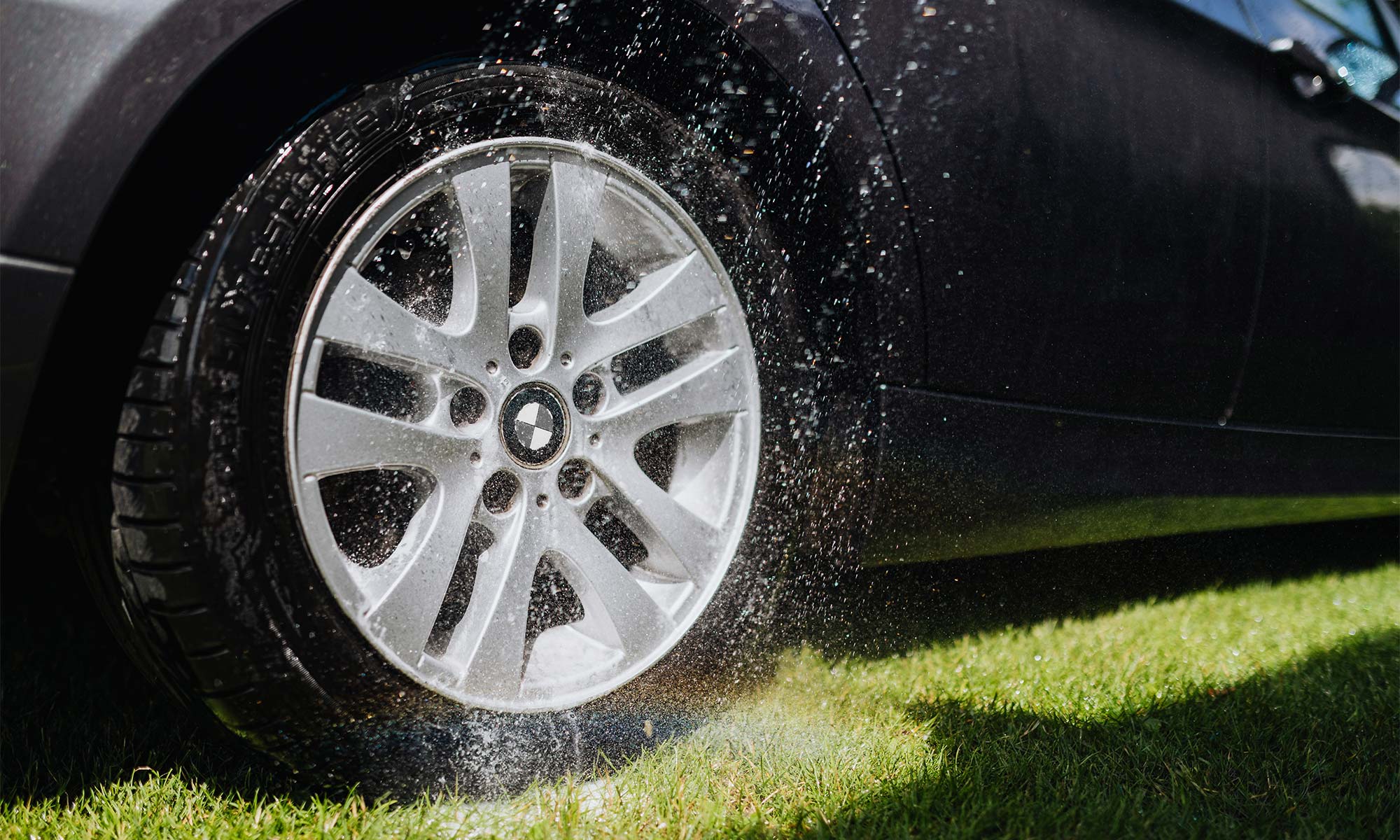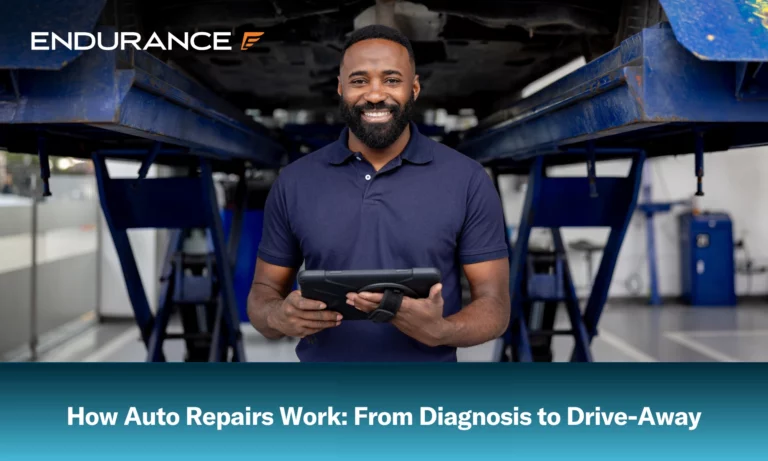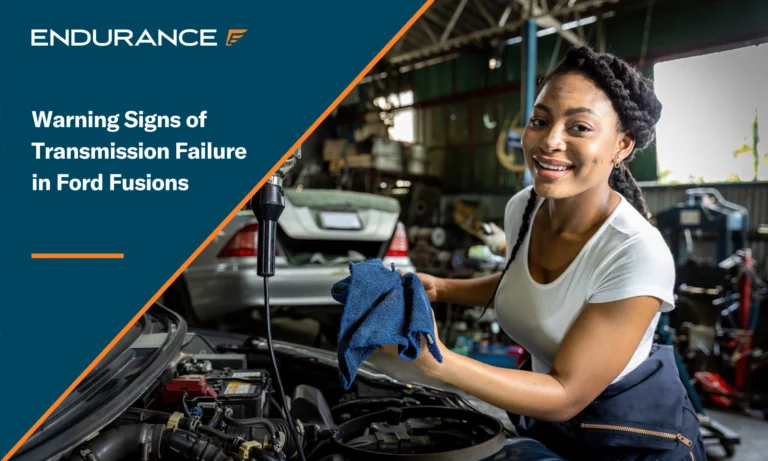Do You Really Need Tire Protectant?

Whether they have a new or a used vehicle, every car and truck enthusiast can admit that they enjoy it when their pride and joy look like it just rolled off the showroom floor. While keeping a car in pristine quality takes time and effort, many individuals seem to have their own routine in place to maintain the look of their vehicles. For most, they can be found each and every weekend surrounded by the best cleaning products they can find, washing away road grime and polishing every inch they can. But, while in the end, they may be able to keep their car looking almost as good as new, there is one piece of a car that seems to stump more than most when it comes to maintaining a pristine look – tires.
One of the biggest misconceptions surrounding tire care is if tire protectants are something that will help tires last longer or stay in better condition. More importantly, is using these types of products absolutely essential in maintaining your car? Some people claim yes, that using tire protectants like this can help keep tires from cracking. Others go the opposite route and say that the detergents and the chemicals in such products can actually damage the rubber in your tires, shortening their lifespan.
In all, there is a lot of misinformation out there on the subject of tire protectants and if they actually help or hurt the life of your tires. First, to get to the bottom of this mystery, it’s important to understand everything you can about tire protectant products.
What is a Tire Protectant?
Tire protectant, tire dressing, tire shine, and tire conditioner are all different ways of describing the same thing: that aerosol spray bottle or foam solvent that you use to achieve those shiny tires that constantly look wet. These tire protectants make various claims, like they will increase your tires’ longevity or even restore the rubber of your tires.
Often, they will claim to protect your tires from UV rays from the sun. However, while all tire protectants have the same general goal, not all are created equal. In fact, not all of them are even made with the same standard ingredients.
What Do Tire Protectants Not Do?
Let’s be clear. Often when reading the back of the spray can or bottle of various types of tire protectants, you’ll find claims like “restores your tires.” But, unfortunately, no product you can buy on the market can restore or repair the rubber of your tires.
If your tires are cracked, you could apply every tire protectant or detailer on the market with the best product reviews to your tires every fifteen minutes for the rest of your life, and it will never repair the actual rubber of your tires. You can prevent damage, even slow it, but nothing will mend it back together once the rubber of a tire splits.
Another thing these tire products will not do is any notable damage. That is, of course, if you follow all of the product’s instructions correctly. Correct use could include using car-safe cleaning items like a microfiber towel or other approved applicator pads, as well as allowing proper drying time before you drive away to show off your gleaming tires.
Tire protectants are often touting to increase the longevity of your tires. However, this is something of a loaded claim. One can’t say this is an outright lie, but it isn’t true 9/10 times in practice. Is it true that these products can prevent wear that will increase the longevity of a tire?
The answer is yes. However, if you regularly clean off any road grime and drive your vehicle in normal conditions, the tire’s sidewall will outlive the tire tread. In other words, your daily driver will need new tires long before cracks and sidewall damage accumulate enough to affect your car’s tires negatively.
There are exceptions to this rule. If the vehicle in question is a show car or a weekend driver and you are putting very few miles on the tire tread, it’s possible to need a little extra protection. However, that’s assuming that your show car is parked somewhere uncovered and in the direct sun a lot, which probably isn’t the case. The vast majority of damage to tire sidewalls comes from UV rays. The best way to protect your car’s tires is to keep them out of the sun. Do that, and you are probably OK, whether you use a tire protectant or not.
Tire protectants also do not act as an all-purpose tire cleaner. But, again, this falls back to the part about using these products correctly. Tire protectants are not designed to clean your tires; however, they are designed to be applied to already clean tires as the final step of the process of cleaning your tires.
What Tire Protectants Can Do For You
Now that we have addressed a few of the claims, we need to look at a few things that the best tire protectant and other tire shine products will do.
Tire protectants will lubricate and add a layer of protection to your tires. There is no question that tire protectants do help to maintain the rubber of your tires. In addition, many have built-in UV protection; consider it something like sunscreen but for maintaining good tires.
This one should be pretty obvious, but another thing that tire protectants will do is give you shiny tires. That’s right. For a short time between washes, your tires will keep that nice, wet look. It helps to repel dirty water, snow, and things that remove your tire’s natural luster, so they stay wetter looking than bare tires.
One of the important and probably best ways that tire protectants will help is in maintaining tires stored for prolonged periods. For example, let’s say you live in a northern climate and have a set of winter tires for the icy months. Sitting tires that do not see many uses have a higher chance of oxidation or suffer from dry rot, where they can begin to crack. Using tire protectants in situations like this can help increase the lifespan of tires you have for a long time.
Some people say that tire shine will lead to the browning of tires. We have all seen older, white-walled tires where the white of the tire is beginning to lose its luster. They start to take on a more dingy, brownish look, which is another of those misnomers.
While using tire protectants will not innately cause your white tires to start to brown, if you apply tire protectants on top of old tire protectants without thoroughly cleaning them, it can contribute to the tires’ browning over time.
Maintain Your Tires’ Luster Longer
The best tire protectants come in many different brands and formulas. You have water-based tire protectants, silicone-based protectants, even protectants made with petroleum distillates. They all generally do the same thing. Some may keep their luster a little better or have different application processes, but they all generally do the same thing.
When it comes to whether you should or should not use these products, it is ultimately up to you. Are you neglecting your tires if you don’t use specific tire shine products such as Armor All or Meguiar? Not at all. You don’t even need to purchase your tire shine at a certified retailer, as Amazon has many options to choose from without having to leave your home. If you are regularly cleaning your car’s tires, that is more than enough to keep them well-maintained and beautiful for their life. It is an added and unnecessary expense.
Is it going to hurt your tires? As long as you use the product properly, absolutely not. If you just have to see your reflection in your tires and don’t mind the added expense, it won’t hurt a thing, but there is something to consider.
If you are washing your car every time your tire shine wears off, which you should be, or if you’re going to be applying more tire protectant, your tires don’t have the time to get noticeably dirty. Clean tires already look gorgeous, and tire shine isn’t going to keep them noticeably cleaner; they simply leave you with, well, shiny tires.
Endurance aims to be your source of knowledge for all things auto. We also want to make sure that everything from your tires to your transmission is well-maintained and protected, which can quickly get expensive. So don’t do it alone; get a free, no-obligation quote from Endurance today to help you avoid costly repairs.













As both an Army Veteran & ASE Certified repair shop owner, Andrew has made educating the modern driver an ongoing mission since the opening of his repair shop, Midwest City Autospa, in 2012. Read more about Andrew.